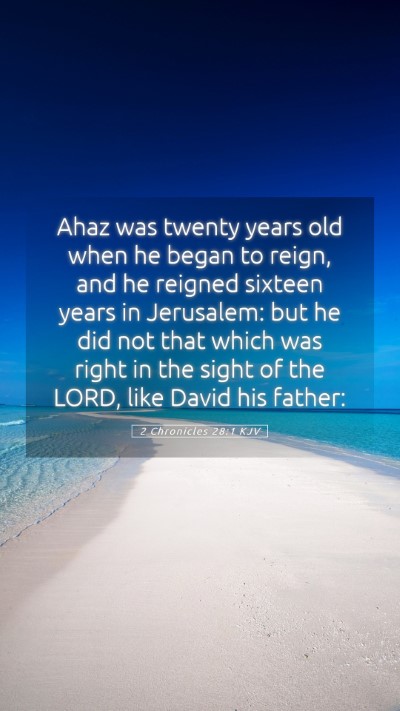Old Testament
Genesis Exodus Leviticus Numbers Deuteronomy Joshua Judges Ruth 1 Samuel 2 Samuel 1 Kings 2 Kings 1 Chronicles 2 Chronicles Ezra Nehemiah Esther Job Psalms Proverbs Ecclesiastes Song of Solomon Isaiah Jeremiah Lamentations Ezekiel Daniel Hosea Joel Amos Obadiah Jonah Micah Nahum Habakkuk Zephaniah Haggai Zechariah MalachiChapter
2 Chronicles 1 2 Chronicles 2 2 Chronicles 3 2 Chronicles 4 2 Chronicles 5 2 Chronicles 6 2 Chronicles 7 2 Chronicles 8 2 Chronicles 9 2 Chronicles 10 2 Chronicles 11 2 Chronicles 12 2 Chronicles 13 2 Chronicles 14 2 Chronicles 15 2 Chronicles 16 2 Chronicles 17 2 Chronicles 18 2 Chronicles 19 2 Chronicles 20 2 Chronicles 21 2 Chronicles 22 2 Chronicles 23 2 Chronicles 24 2 Chronicles 25 2 Chronicles 26 2 Chronicles 27 2 Chronicles 28 2 Chronicles 29 2 Chronicles 30 2 Chronicles 31 2 Chronicles 32 2 Chronicles 33 2 Chronicles 34 2 Chronicles 35 2 Chronicles 36Verse
2 Chronicles 28:1 2 Chronicles 28:2 2 Chronicles 28:3 2 Chronicles 28:4 2 Chronicles 28:5 2 Chronicles 28:6 2 Chronicles 28:7 2 Chronicles 28:8 2 Chronicles 28:9 2 Chronicles 28:10 2 Chronicles 28:11 2 Chronicles 28:12 2 Chronicles 28:13 2 Chronicles 28:14 2 Chronicles 28:15 2 Chronicles 28:16 2 Chronicles 28:17 2 Chronicles 28:18 2 Chronicles 28:19 2 Chronicles 28:20 2 Chronicles 28:21 2 Chronicles 28:22 2 Chronicles 28:23 2 Chronicles 28:24 2 Chronicles 28:25 2 Chronicles 28:26 2 Chronicles 28:27

